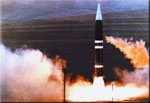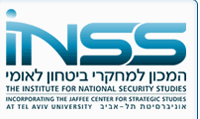By Franck Znaty (**@*****fo.com)
In light of Iran’s determined drive to acquire nuclear weapons, what options remain on the table for the Kingdom of Saudi Arabia?
While the question of Saudi Arabia acquiring nuclear weapons has been raised many times in the past, news reports announced that Saudi Arabia was building nuclear power plants “tasked with the research and application of nuclear technology”.
***
 Credit: http://nuclearweaponarchive.org
Credit: http://nuclearweaponarchive.org
A paper called “The Saudi Nuclear Option” authored by Yoel Guzansky of the Tel-Aviv based Institute for National Security Studies (INSS) indeed explores the possibility of Saudi Arabia acquiring nuclear weapons. In this paper, the author draws a parallel between the aforementioned Saudi announcement and the publication of a memo from US Secretary of Defense Robert Gates, which argued that “the United States does not have an effective long-range policy for dealing with Iran’s steady progress toward nuclear capability.”
The paper goes on to analyze Saudi Arabia’s options in regards to a nuclear-armed Iran:
1) Are closer defense ties with the US the best course of action?
2) Should Saudi Arabia pursue its own nuclear weapons?
3) Should it come to terms with a nuclear neighbor and instead push for the idea of a nuclear-free Middle East?
Guzansky points out that in 2006, at the annual Gulf Cooperation Council (GCC) summit, Riyadh announced, along with the other countries in the GCC, their interest in developing peaceful nuclear programs. While being careful not to target Iranian ambitions, the objective was clear, as the author notes: “The primary motivation was Iran’s nuclear ambition.”
The author believes that Saudi Arabia has actually no other choice but to pursue its own nuclear program in the face of a growing Iranian influence in the region. He argues that in a context in which the Kingdom finds itself as the de-facto leader of the Arab world (in the face of an Egyptian steady eclipse as the leader of the Arab world ), if Riyadh wants to counterbalance the influence of the “ideological-religious rival and main competitor for regional influence” embodied by Tehran, it makes sense for the Saudi leadership to pursue its own nuclear program.
In order to do so, the author suggests that Riyadh could look towards its ally in Islamabad for help on this issue. Guzansky indicates that in 2003, the former Israeli head of military intelligence appeared in front of the Knesset’s Foreign Relations and Defense Committee and declared: “the Saudis are in contact with Pakistan for purchasing nuclear warheads for the surface-to-surface missiles in their arsenal…They have decided to act in order to redress the balance of terror vis-à-vis Iran’s armament, and intend to deploy Pakistani warheads on their soil.”
The reader is reminded of the close defense ties that exist between Saudi Arabia and Pakistan, especially as it appears that it was in fact the former that was the financial catalyst behind the latter’s nuclear and missile programs. Moreover, “after the Islamic Revolution and throughout most of the 80’s Pakistan stationed military forces in Saudi Arabia and the two nations cooperated in assisting the Afghani mujahidin,” writes the author. In short, there is a history of defense ties and Guzansky depicts a scenario whereby Saudi Arabia “find itself in a sensitive security situation, it may well be that it would seek to capitalize on its investment in the Pakistani program.”
What brings together these two Sunni countries, notes the author are common interests. He describes what the two countries see in each other as follows: “Pakistan has the knowledge and skilled manpower but lacks the cash, while Saudi Arabia has vast cash reserves but lacks the relevant infrastructures and skilled manpower.”
Riyadh, suggests the author, could welcome Pakistani weapons on its soil and have those weapons being operated by Pakistan itself so as not to contradict its commitment to the Non-Proliferation Treaty (NPT). This scenario, as far-fetched as it may sound, should not necessarily be rejected “especially if Iran decides that the circumstances are right for it to ‘break out’ for nuclear weapons,” analyses Guzansky’s paper.

The Saudis have in their arsenal missiles that could carry nuclear warheads. In the 1980s, the Saudis acquired 36 Chinese CSS-2 surface-to-surface missiles in a secret deal. Guzansky believes that these missiles “supply a base for possible upgrade and for training professional teams” despite their age. In addition, news reports have recently circulated indicating that Saudi Arabia was “upgrading the strategic missile reserves” as well as the “the inauguration of a new command and control facility associated with the kingdom’s missile force”.
The Saudis are clearly growing wary over the development of an Iranian nuclear bomb. As recently expressed by the Kingdom’s Foreign Minister: “Sanctions are a long-term solution…But we are looking at an Iranian nuclear program within a shorter term because we are closer to the locus of the threat. We are interested in immediate rather than in gradual solutions.” The Iranian development, the author believes, might provoke an acceleration of Saudi plans and perhaps a defense treaty with Pakistan spurred by the urgency of the situation.
Guzansky believes that strategically Saudi Arabia is left with two options based upon “if and how” Iran decides to break the nuclear threshold:
- If Iran does not break that threshold: Saudi Arabia “turns a blind eye” and works to deepen the cooperation among the Gulf states.
- If Iran displays the acquisition of nuclear weapons and for example undertakes a nuclear test: Saudi Arabia would then feel compelled to acquire these same weapons.
Riyadh could well inform the United States of these strategic options in a bid to force the latter to increase its commitment to the Kingdom’s security as it recognizes that the United States has superior military capabilities. But let us make no mistake, warns Guzansky, Saudi Arabia is known to diversify its security options and apart from seeking a greater security commitment from the US, Riyadh will pursue other alternatives.
According to Guzansky, these other alternatives will respond to two imperatives: greater independence in decision-making, and the upholding of “a stable balance of deterrence” in the region for the foreseeable future.
However, it is clear that this palette of choices will not satisfy the United States. As the author recalls: “there are not many states that are as important to the United States as Saudi Arabia.” The author concludes that the mere existence of the “Saudi Option” will force Washington to enhance its commitment to the security of the Kingdom. Failure to do so will lead to a serious crisis between the two countries, concludes Guzansky.
__________
*** Posted on May 28th, 2010


